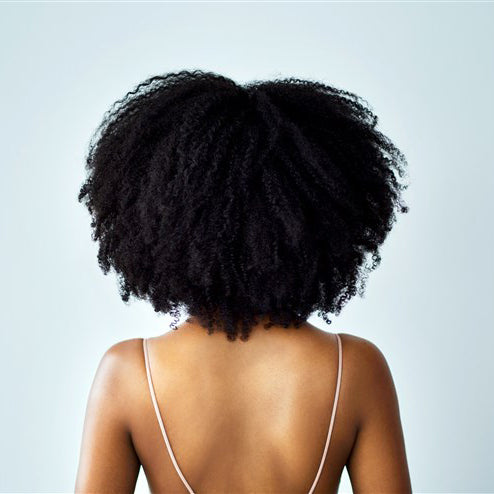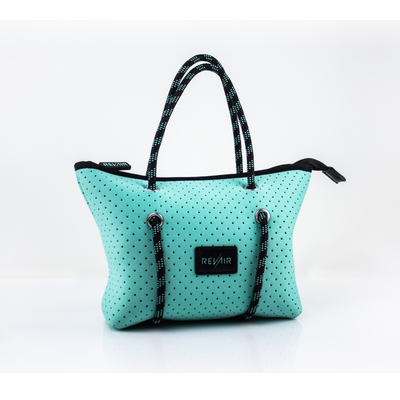
The Scoop on the California Crown Act
Since we love to talk about all things hair, and it is not every day that hair is a part of the news, we have decided to talk about natural hair discrimination and the passing of California’s Crown Act law.
Before we get into talking about this newly passed law, we should talk about what hair discrimination is.
WHAT IS HAIR DISCRIMINATION?
Hair discrimination is a form of social injustice that targets those with afro-textured hair who may wear it natural or in protective styles like cornrows, dreadlocks, box-braids, and bantu knots.
This form of discrimination has been found mostly in the workplace and in schools. For example, many schools have made these styles against the dress code.
A recent study by Dove says that black women are 80% more likely to change their natural hair to conform to social norms or expectations at work. This could stem from the fear of seeming “unprofessional” or being judged because of a hairstyle, highlighting the extent of hair discrimination.
To really paint the picture of hair discrimination, here are some real-life examples of instances where women have been discriminated against because of their hair:
Jenkins v. Blue Cross Mutual Hospital Insurance
One of the earliest cases of hair discrimination in the workplace to be documented took place in 1976. The U.S. Court of Appeals for the Seventh Circuit upheld a race discrimination lawsuit against an employer for bias against afros in the case of Jenkins v. Blue Cross Mutual Hospital Insurance. The appeals court agreed that workers were entitled to wear afros under Title VII of the Civil Rights Act.
Although legally afros were deemed acceptable in the workplace, social pressures for women with coily hair to emulate Eurocentric hair traveled through the black American society.
Chasity Jones
Another example would be the case of Chasity Jones. She was in an almost ten-year legal battle after an employer revoked a job offer at an Alabama call center because of the fact that Jones refused to cut her hair.
The employer offered Jones the job, without saying anything about her hair, then in a private conversation (after the job was already offered), the employer asked Jones about her hair and mentioned that locs were not accepted there and sometimes “dirty.” Chasity Jones sued the company in 2013, but her claim was dismissed until the NAACP filed a petition to bring her case to the Supreme Court, who declined to hear it.
Marian Scott
Eight-year-old Marian Scott was prevented from participating in school photos because of her hairstyle. She showed up to school with red cornrows in her head, which school officials said violated school pictures policy.
NBC news wrote, “Marian’s school, the Paragon Charter Academy in Jackson has a strict dress code in its student handbook, outlining that hair color must be in “natural tones” to get pictures taken. Paragon Academy also says that hairstyles must be ‘conservative’ and that 'extreme hairstyles’ are not permitted.”
Cornrows , twists, and locs are common hairstyles worn by women of color as myriads of hairstyling option they have with their hair. Today, those traditional styles are more than just hairstyles. They are valued and are now called “protective hairstyles.” Many black women feel these kinds of hair styles are protecting their natural hair. Unfortunately, protective hairstyles are not always seen as “professional” or acceptable by some companies and schools.
Marian’s story went viral online, and a Chicago photographer by the name of Jermaine Horton reached out to her parents. He wanted to give Marian a professional photoshoot for free since she was unable to take her school photos. Jermaine traveled hundreds of miles to photograph Marian in hopes of rebuilding her confidence.
CALIFORNIA’S CROWN ACT LAW
On New Year’s Day, January 1st, 2020, California instituted the Crown (Create a Respectful and Open Workplace for Natural Hair) Act. This law prohibits discrimination against a person at work and at school based on their hairstyle and hair texture and that includes afros, braids, twists, and locks.
California is among the first to create a law that prevents this type of discrimination. Dove in partnership with the National Urban League, Color of Change, and Western Center on Law and Poverty co-founded the Crown Coalition which sponsored the Crown Law that was introduced by Senator Holly J. Mitchell.
The California Crown law is significant because it allowed federal courts to view natural black hairstyles (other than afros) as a racial trait protected by anti-discrimination laws.
WHO ELSE?
While no one else has a law in place yet, there are plenty of other states working towards it with bills that emulate the Crown Act. In December of 2019, Rep. Marcia Fudge (D-OH) and United States Senator, Cory Booker (D-NJ) announced in a press releases they will be introducing the CROWN Act in their states as well.
New York and New Jersey are right behind California with criminalizing hair discrimination. The lawmakers in New York and New Jersey have versions of the CROWN Act and California Gov. Gavin Newsom said he's proud to lead the nation by being the first to sign it into law.
New York, New Jersey, and Maryland have also passed a Crown Act law.
EMBRACE YOUR HAIR
Loving your hair is important. It is a part of who you are and a great way for you to express yourself. We love that the RevAir Reverse-Air Dryer allows you to have the choice to have healthy and happy hair, whether or not you choose to straighten it. The RevAir does not always have to be used to straighten your hair. In fact, many women with type 3 and 4 hair use it to dry their two strand twists, braided extensions, box braids, locs or straighten their wigs. The choice is yours.

















